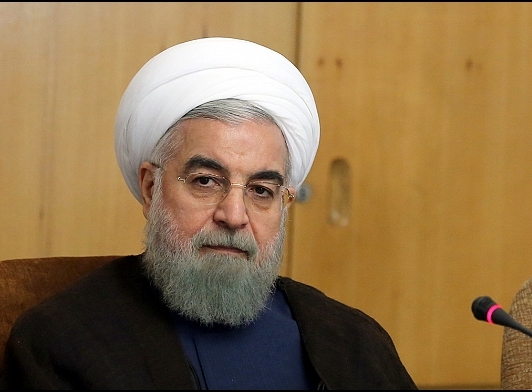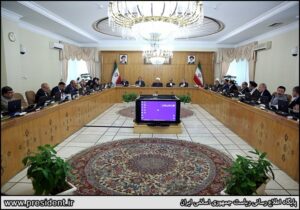The nuclear deal, known as the Joint Comprehensive Plan of Action (JCPOA), was signed between Iran and the six countries of the United States, Britain, Russia, France, China, and the Germany — collectively known as the Group 5+1 — on July 14, 2015 following some 23 months of intensive talks.
Under the deal, Iran agreed to limit its nuclear program and provide enhanced access to international atomic monitors in return for the termination of all nuclear-related sanctions imposed by the United States, the United Nations (UN) and the European Union (EU) against Iran.
“If, someday, the Group 5+1 refuses [to fulfil] its commitments, we will be completely prepared, and, in terms of nuclear capabilities, we are at such a level so as to be able to reach our desired stage in a short period of time,” President Rouhani said in the ceremony on Wednesday, July 13.
The JCPOA, the president said, “is beneficial to all countries, [and] to global peace, security, stability, and development, and its violation will be to everyone’s detriment.”
“Anyone that initiates the violation of the deal will be the loser on the international arena,” the Iranian chief executive said.
The president said everyone should make efforts “toward the [due] implementation and consolidation of the JCPOA and toward benefiting from it in general.”
Suggesting that July 14, the day when the deal was signed, be called the “Day of Interaction with the World,” President Rouhani said the JCPOA proved Iran’s might.
“On this day, the Islamic Republic of Iran proved to the entire world that it has such competence and proficiency in political, technical and legal issues as well as in logic that it can negotiate with big powers to resolve a complex international issue and adequately defend the Iranian nation’s rights,” the Iranian president said.
President Rouhani went on to enumerate the benefits of the JCPOA for Iran, and thanked those involved in the negotiations that led to the deal, including negotiators.
He said one such benefit was that the threat of military invasion against Iran was removed as the nuclear pretext for such an invasion was proven hollow.
It was made clear, according to the president, that Iran has never been and will never be seeking to obtain nuclear weapons, and “what mattered to us was capabilities in enrichment as a technical and scientific issue.”
“Negotiations… made it clear that nuclear activities and [uranium] enrichment are Iran’s inalienable rights,” President Rouhani said, as reported by Press TV.
Thanks to the JCPOA, he said, sanctions on arms sales to Iran have been lifted and Iran can upgrade its defensive and military might.
The standoff over Iran’s nuclear program began back in 2003 when Western countries and some of their allies accused the Islamic Republic of seeking to build a nuclear bomb, an allegation Tehran categorically denied.
The nuclear talks were being held in an on-and-off manner for over 12 years overall. Iran’s original negotiating partners were the UK, France and Germany, a group known back in 2003 as the E3.
The talks, however, gained greater momentum under the administration of President Rouhani, who tasked the Iranian Foreign Ministry — under Foreign Minister Mohammad Javad Zarif’s watch — with handling the talks soon after assuming office in 2013.

